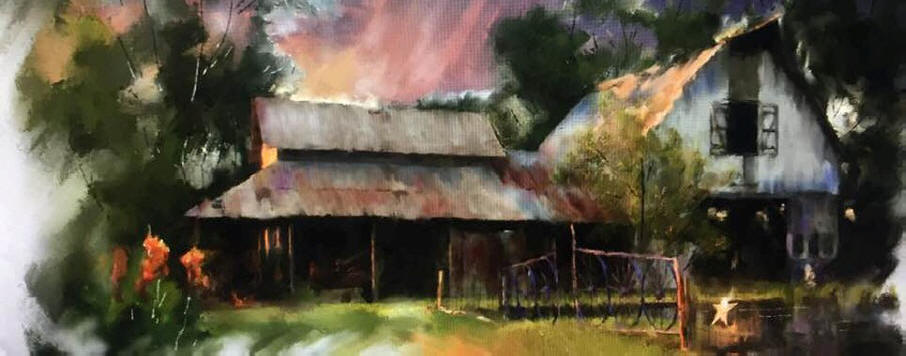
~ Delta Poetry Review ~
Freezers
The story, each time the biologist
retold it, elicited laughter, how
the English professor who named her pets
after women writers had sought him out
bearing Jane Austen, her
latest dead cat,
because January’s zero days meant
she could not open ground to bury it
beside years of others in her backyard.
Like anyone would, he’d agreed to store
the box inside his department’s freezer,
donating two months of safety, but then
he had forgotten it and so had she,
her younger sister falling terminally ill,
her house a distraction of rescued dogs.
Well, he would say, dramatically pausing,
seven years passed. A new science building
meant a move of specimens from freezer
to freezer, and there was the cat, somewhat
worse for wear, the season winter again,
that woman retired, and he had flung it,
still boxed, into the dumpster provided
for transition’s casualties, not being
heartless by driving that cat to her door.
What difference, after all, would it make,
the cat never brought it up to her again,
especially now that he’s heard she’s lost
place in the world, her mind relocated
near childish dependency. But couldn’t
that story have been magical enough
to rouse her to memory, retelling
a prince-like save of the long-forgotten?
Couldn’t he have driven that coffin home?
Couldn’t he have laid it in a corner
of his basement, stand-up freezer until
the gods returned warmth once more, defrosting
the soil to enable acceptance
of the shovel’s ancient task, the body
solemnly interred after small, good time?
Dairy Farms
I owned an Omni once, a car so unreliable I
carried
quarts of oil
like passengers and was afraid to leave it in the
rain,
so I’m certain
the morning was clear when I parked and allowed
that car to rest
beside a field where dozens of cows grazed among
a scattering
of discarded Omnis, confirming a friend’s
late-night,
beer-soaked story.
The cows breathed white where they were shadowed;
the skeletal
Omnis prophesized so convincingly I pledged
to trade my car
before it was strangled by an overnight downpour,
a vow I never
mentioned to the student, years later, who, in
precise,
exacting prose,
described her father’s farm, citing the names of
twelve cows,
the dollars and cents
of one year’s income after expenses were
subtracted,
building, at last,
to the life cycle hazards of dairy cows, how
calves
were sometimes
crushed by their mothers, how scours was a scourge
that thinned a herd,
and the frequency of what she called “downed
cows,”
those who refused
to get up, even if prodded and tugged, receiving,
as
a last resort,
a glucose injection that worked often enough
she’d seen dozens
stand and walk, surviving until her father had
to calculate
the life span of that cow’s arthritic legs because
walking to
the rendering truck was a requirement for a final,
decent return.
That same year a network television show featured
her classmate
and the ghost of a boy that haunted her childhood
room
on the last dairy farm
in a neighborhood full of failures, the small
space
where he had died,
at nine, twenty-five years before she was born.
A camera
scanned that room while her voice-over confirmed
she still felt
his presence, confessing that for years she had
spent
more nights “just sleepless”
than afraid. Almost in love with his transparency,
she dreamed her body
watched by someone who envied her, not sexual.
but brotherly,
like he could bless her with a lifetime long on
safety.
She would be
valedictorian, nothing but A's. The first farmer’s
daughter
wrote a portfolio
of poems without “the” and “a” because, she
explained,
articles looked
like clutter, an affectation she refused to
abandon,
making everything
she wrote invisible but that emptiness, her pages
become the world
of lengthy migraines, swallowed by absence.
After graduation, I drove my father to the dairy
farm
that bordered
property he had held for thirty years, a
retirement plan
he worshipped
until my mother died. The farmer’s three sons
were fathers now,
two working elsewhere, as he put it, “for others.”
Pastured, the cows
were at a distance that kept me from counting
what looked like loss.
For all those thirty years, my father had praised
the independence
earned by work meant to mean you were “beholden
to nobody.”
Eighty-five, his last year with a cane, he led me
into the trees
he’d owned to walk among whatever ghosts
he welcomed.
What remained, by then, was my silent patience as
he
summoned his love
for work that rose before sunrise, the private
discipline
a calling
accepted by so few he could distinguish one lost
voice
from another
in a clearing where he had constructed a picnic
shelter
by hand, where,
among the trees, while my wife followed discreetly
with a camera,
I worked to honor that near-ruin by stepping
inside
to suggest
the indelible presence of his personal past.
Gary Fincke's latest collection The Infinity Room won the Wheelbarrow Books Prize for Established Poets (Michigan State, 2019). Earlier collections are from Arkansas, Ohio State, BkMk, and Lynx House, as well as Stephen F. Austin University, which published Bringing Back the Bones: New and Selected Poems in 2016.
| Archive | Submissions | About |